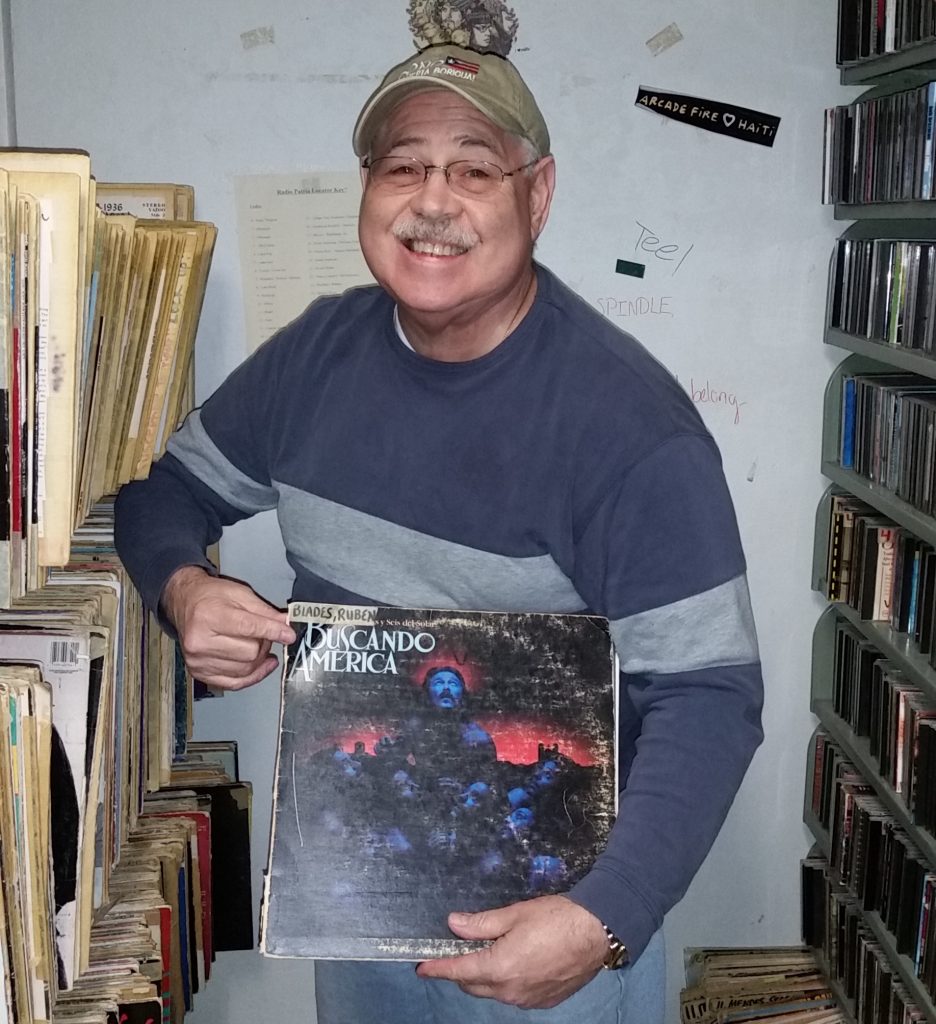WHRW 90.5 FM is a community radio station located on campus that has been active since 1966. Ferdinand Montalvo, ‘87, host of the Latin department of WHRW Radio Patria, which translates to “Homeland Radio” in Spanish, shared how the Latin department of WHRW has changed throughout the 40 years of his involvement.
Montalvo said the original name for Radio Patria was “Radio Libertad,” but its name was changed between 1978 and 1979. Montalvo began apprenticing with Dr. Jorge Chinea, who is currently a professor of Latin American studies at Wayne State University, and was cleared as a host in 1980.
“The department must have started somewhere around ‘74 [or] ‘75, maybe ‘76,” Montalvo said. “At that point, it was a part of the Latin-Afro department. We were playing Latin music, but we were under the rubric of ‘Afro-Latin’ because we also had an Afro department that played soul and rhythmic blues.”
Montalvo explained that hosting the show called “Dimenciones” on Radio Patria gave him a greater understanding of Latin music. He was introduced to new genres and was able to explore Latin music in more depth.
“Once I got involved and got cleared in 1980, I discovered a new world of musical perspective,” Montalvo said. “It just enhanced my understanding of Latin music. And I got exposed to a little bit of jazz. It was so cool to explore all those different genres that I was never really keen to.”
To Montalvo, being a host on WHRW means more than compiling a list of songs to play. Hosting means entertaining, as well as educating, his listeners.
“With being a broadcaster, you’re producing your radio show,” Montalvo said. “You’re presenting a perspective. You might be talking about the artist or the type of music. And so, you are interacting as a broadcaster presenting information and enlightening.”
By listening to Radio Patria and specifically “Dimenciones,” people are exposed to new music and different cultures. In addition, listeners are given a glimpse into the history of the music being played.
“It presents a contrast from popular culture,” Montalvo said. “If you are Latino, or even if you are not Latino, it exposes you to a variety of different musicians — their styles, their history and their impact on American culture. There’s a lot to learn. I always say jokingly that ‘I got my Ph.D. in ethnomusicology at WHRW’ because you get exposed to so much different music.”
Montalvo continued to learn more about Latin history and shared his knowledge with those tuning into Radio Patria. Certain Latin musicians began to stand out, and he described how these names gained recognition within the United States.
“Slowly but surely, a lot of names started to stand out like Mambo Kings, Tito Puente, Tito Rodriguez, the great Machito, all mambo kings of the fifties with the mambo praise,” Montalvo said. “I started to formulate a kind of understanding of a basis for Latin history in the U.S. — How Cuba influenced Latin music in the U.S.”
He detailed the different Cuban influences on Latino music. A multitude of Afro-Cuban rhythms had arisen and were eventually given labels. Montalvo said salsa music, which translates from Spanish to “sauce” and is associated with spice, came about after Cuban son and Afro-Cuban rumba were combined. He said these dances and rhythms became popular within the United States.
“What happened was with Afro-Cuban music there were so many different rhythms: the guaguanco, the cha-cha-cha, the son, the Cuban son mantuno, the guaracha, the merengue from Santo Domingo, cumbia from Colombia,” Montalvo said. “So all these different rhythms, especially in the mecca of New York City and Florida, were all being played whether on the radio or with live bands.”
Montalvo’s musical style expanded as he became more familiar with different Latin genres. His show, “Dimenciones,” was altered as the focus moved to Latin jazz and Afro-Cuban music.
“When I started my radio show, I used to do a little bit of Latin rock playing Santana, some dance disco, then I would blend that in with a little bit of salsa that I was familiar with,” Montalvo said. “But as time went on, I started to increase my musical awareness and repertoire, and I started to vary with Latin jazz and Afro-Cuban rhythms, what we call salsa. But it was always about representing and presenting an alternative locally.”
Montalvo became the first Latino program director of WHRW in 1981 and the first Latino general manager in 1982. He explained that radio had allowed him to interact and give back to the community. Montalvo’s goal with the show “Dimenciones” was to maintain an alternative in radio broadcasting, presenting Latin music to the Southern Tier. It is now the longest running Latin music show in the Southern Tier.
Montalvo said that music and radio has been therapeutic, suggesting that others turn to music to relieve stress.
“If you’re feeling stressed out with your studies, or with the whole stress of COVID-19, put on a little bit of music,” Montalvo said. “Whether it’s Latin music, whether it’s classical, whether it’s jazz. Hopefully it’ll help dissipate that negative stress/energy that might be building up, and, 10-20 minutes later, it’ll bring a smile to your face. You start dancing and you start loosening up, and that’s a stress release right there. In that moment, that was your cure. That was your therapy.”
Listeners can tune into Radio Patria on Saturday nights from 7:15 p.m. to 9:45 p.m. on WHRW 90.5 FM. In addition, Montalvo posts playlists on his Facebook page @Dimenciones.



